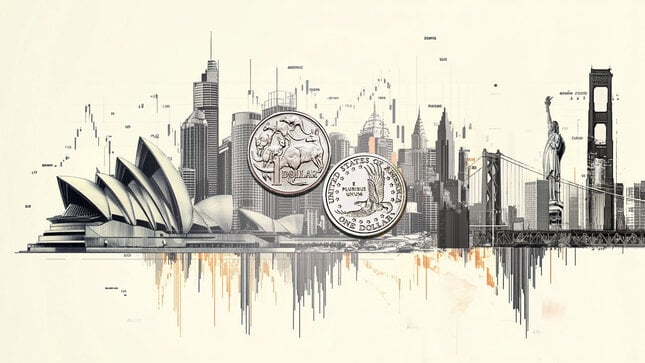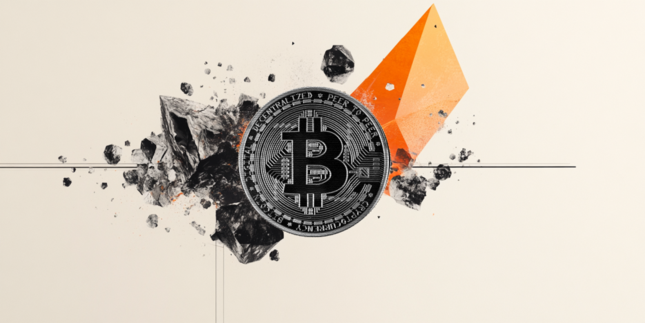I can analyze the economy in specific detail for endless articles, but the health of the economy has had declining relation to the stock market returns lately. I calculated the correlation between quarterly GDP and the S&P 500 from 2008 to 2016. The correlation coefficient is 0.973 which signals there’s very high correlation between the two variables. However, you look at the data from 2014 to 2016, which is the time when the economy has been weak while stocks rallied, the coefficient of correlation has dropped to 0.819. It’s not surprising because investors aren’t buying stocks because of the strength of the economy. They’re buying index funds because that’s the hot trend brought about by low interest rates and historical active management underperformance. I think the most likely way for this trend to reverse is poor stock performance. When an investor is buying something he/she has no knowledge of he/she has a very low risk tolerance. A 10% correction could start a snowball effect as the money pushed into passive management gets taken out.
I would argue passive investing isn’t investing at all. It’s mindlessness. The reason why I have gone from liking the passive investing strategy to hating it is because of its increased popularity. As like when most things become popular, its original intent has been distorted. Investing in passive ETFs such as the S&P 500 index fund made sense because mutual funds had been shown to miss their benchmark. 67% of active management funds have missed their benchmark and 86% have missed their benchmark when you include the liquidated funds. The S&P 500 usually rewards investors over time if they buy and hold assuming they don’t buy the market near the top. The problem with this basic analysis is it became popular which has made it no longer relevant. It’s common sense that if everyone buys any asset, not only is the alpha long gone, but the returns become negative.
Index buying distorts the market as it makes capital markets inefficient which may be leading to productivity weakness. Correlation doesn’t lead to causation, but when companies aren’t being rewarded for their performance, capitalism doesn’t work properly. To be clear, index buyers are purchasing the stocks within an index based on their market cap (which affects the weighting). Small firms haven’t had the margin growth of larger firms in the past few years. This trend toward ETF buying may be suppressing the small companies and helping the large ones. This is the same effect regulations have. Hurting small companies hurts productivity growth because the best innovation comes from startups. This new system of index buying can prop up zombie companies with declining revenue growth (think IBM & Caterpillar).
This toxicity of rewarding bad performance is already happening because low interest rates are encouraging speculation in companies like Netflix which don’t have positive free cashflow. Index funds are accentuating the madness. A company can gain support from Wall Street by gaining market share while ignoring profit growth. Then once it gets into the S&P 500 or another similar index fund, it gets supported no matter what it does.
The face of the index fund trend is Vanguard which was highlighted in the NY Times this weekend for its enormous success. In the last three years, Vanguard has accumulated $823 billion. The other 4,000 mutual funds only accumulated $97 billion in assets. That’s an 89.46% market share. I have spoken to small investors who have become woken up to the large fees and underperformance active managers are charging. It is logical to pay attention to fees and performance, but it’s illogical to ignore what you’re buying. Just because one strategy isn’t working for you, doesn’t mean you repeat the mistake, by not following what you’re buying. Now is the time when paying attention to what you’re buying is especially important. Investors are going to wish they weren’t tied to the S&P 500 when it falls.
The best strategy when buying active funds historically has been to buy funds with low fees. Large cap funds from the lowest quartile of fees have outperformed the S&P 500 by 0.18% from 1992 to 2015. This is a classic case of throwing the baby out with the bath water. Investors are seeing their own fund underperforming (the average fund underperformed by 0.71%) and are deciding passive investing is a better strategy. The next trend which will occur after everyone piles into index funds is they will abstain from stocks altogether. Some millennials are doing so as they witnessed the latest crash in 2008. The third crash will surely make investors think twice about putting any money in stocks. It’s interesting to hear the logic of TINA (there is no alternative) investors. They cannot understand why anyone would switch to cash as they ignore capital preservation. The best thing to do when these investors give up will be to invest in the low fee active funds. There will more low fee funds than ever because the high fee funds are seeing large withdrawals.
The current trend towards index funds makes it more difficult than ever to outperform the market because companies aren’t being rewarded for good results. It’s already difficult to pick which firm in an industry will be the best performer. Now, even if you do so, you won’t be rewarded as much as usual. The only way active managers will outperform the index over the next few years will be to hold some cash. When the passive fund strategy is flushed out of the system, the active managers who are picking stocks will once again be able to outperform the index.
The point about index fund investors making it more difficult to pick stocks was lost on CNBC as it featured a quote by Thomas Rampulla, head of U.S. Financial Intermediaries at Vanguard. He stated "It's getting harder and harder for managers to outperform. There's been a real professionalization of the asset management industry on the active side." He then cited the fact that about 20% of assets were professionally managed 50 years ago, while today 68% of assets are professionally managed. Firstly, he is talking his book by claiming it’s tough to beat the market; he would say that no matter what the performance numbers said. More importantly, he ignores the self-fulfilling nature of index investing. The more money which is put into index funds makes it tougher to outperform the index which then makes more investors pull their money out.
Conclusion
Index investing is not a sustainable trend just like investing in the Nasdaq was a bad idea in the 1990s. Steer clear of the stock market until it becomes cheaper. Then, buy a low cost active fund or pick stocks yourself. It will be easier in the future.
Don Kaufman: Trade small and Live to trade another day at Theotrade.
Neither TheoTrade or any of its officers, directors, employees, other personnel, representatives, agents or independent contractors is, in such capacities, a licensed financial adviser, registered investment adviser, registered broker-dealer or FINRA|SIPC|NFA-member firm. TheoTrade does not provide investment or financial advice or make investment recommendations. TheoTrade is not in the business of transacting trades, nor does TheoTrade agree to direct your brokerage accounts or give trading advice tailored to your particular situation. Nothing contained in our content constitutes a solicitation, recommendation, promotion, or endorsement of any particular security, other investment product, transaction or investment.
Trading Futures, Options on Futures, and retail off-exchange foreign currency transactions involves substantial risk of loss and is not suitable for all investors. You should carefully consider whether trading is suitable for you in light of your circumstances, knowledge, and financial resources. You may lose all or more of your initial investment. Opinions, market data, and recommendations are subject to change at any time. Past Performance is not necessarily indicative of future results
Editors’ Picks

AUD/USD meets initial resistance around 0.7100
A decent rebound in the US Dollar is behind the AUD/USD’s daily pullback on Tuesday. In fact, the pair comes under modest downside pressure soon after hitting fresh yearly peaks in levels just shy of 0.7100 the figure on Monday. Moving forward, investors are expected to closely follow the release of Chinese inflation data on Wednesday.

EUR/USD looks offered below 1.1900
EUR/USD keeps its bearish tone unchanged ahead of the opening bell in Asia, returning to the sub-1.1900 region following a firmer tone in the US Dollar. Indeed, the pair reverses two consecutive daily gains amid steady caution ahead of Wednesday’s key US Nonfarm Payrolls release.

Gold the battle of wills continues with bulls not ready to give up
Gold remains on the defensive and approaches the key $5,000 region per troy ounce on Tuesday, giving back part of its recent two day. The precious metal’s pullback unfolds against a firmer tone in the US Dollar, declining US Treasury yields and steady caution ahead of upcoming key US data releases.

Bitcoin's downtrend caused by ETF redemptions and AI rotation: Wintermute
Bitcoin's (BTC) fall from grace since the October 10 leverage flush has been spearheaded by sustained ETF outflows and a rotation into the AI narrative, according to Wintermute.

Dollar drops and stocks rally: The week of reckoning for US economic data
Following a sizeable move lower in US technology Stocks last week, we have witnessed a meaningful recovery unfold. The USD Index is in a concerning position; the monthly price continues to hold the south channel support.
RECOMMENDED LESSONS
Making money in forex is easy if you know how the bankers trade!
I’m often mystified in my educational forex articles why so many traders struggle to make consistent money out of forex trading. The answer has more to do with what they don’t know than what they do know. After working in investment banks for 20 years many of which were as a Chief trader its second knowledge how to extract cash out of the market.
5 Forex News Events You Need To Know
In the fast moving world of currency markets where huge moves can seemingly come from nowhere, it is extremely important for new traders to learn about the various economic indicators and forex news events and releases that shape the markets. Indeed, quickly getting a handle on which data to look out for, what it means, and how to trade it can see new traders quickly become far more profitable and sets up the road to long term success.
Top 10 Chart Patterns Every Trader Should Know
Chart patterns are one of the most effective trading tools for a trader. They are pure price-action, and form on the basis of underlying buying and selling pressure. Chart patterns have a proven track-record, and traders use them to identify continuation or reversal signals, to open positions and identify price targets.
7 Ways to Avoid Forex Scams
The forex industry is recently seeing more and more scams. Here are 7 ways to avoid losing your money in such scams: Forex scams are becoming frequent. Michael Greenberg reports on luxurious expenses, including a submarine bought from the money taken from forex traders. Here’s another report of a forex fraud. So, how can we avoid falling in such forex scams?
What Are the 10 Fatal Mistakes Traders Make
Trading is exciting. Trading is hard. Trading is extremely hard. Some say that it takes more than 10,000 hours to master. Others believe that trading is the way to quick riches. They might be both wrong. What is important to know that no matter how experienced you are, mistakes will be part of the trading process.
The challenge: Timing the market and trader psychology
Successful trading often comes down to timing – entering and exiting trades at the right moments. Yet timing the market is notoriously difficult, largely because human psychology can derail even the best plans. Two powerful emotions in particular – fear and greed – tend to drive trading decisions off course.

